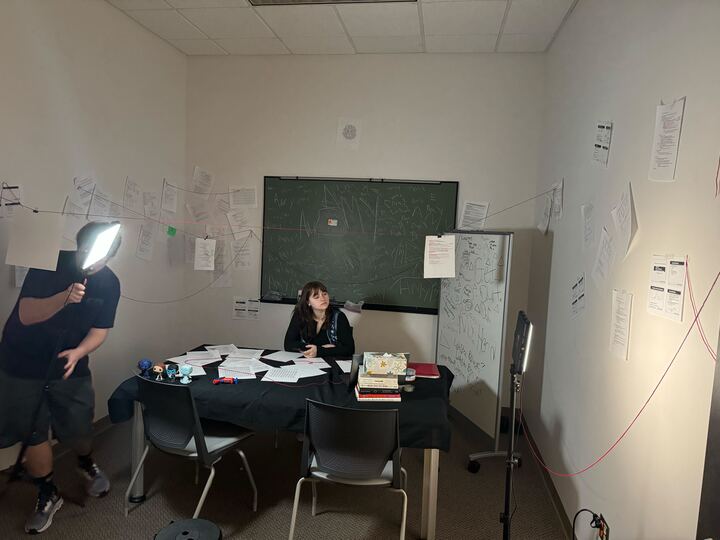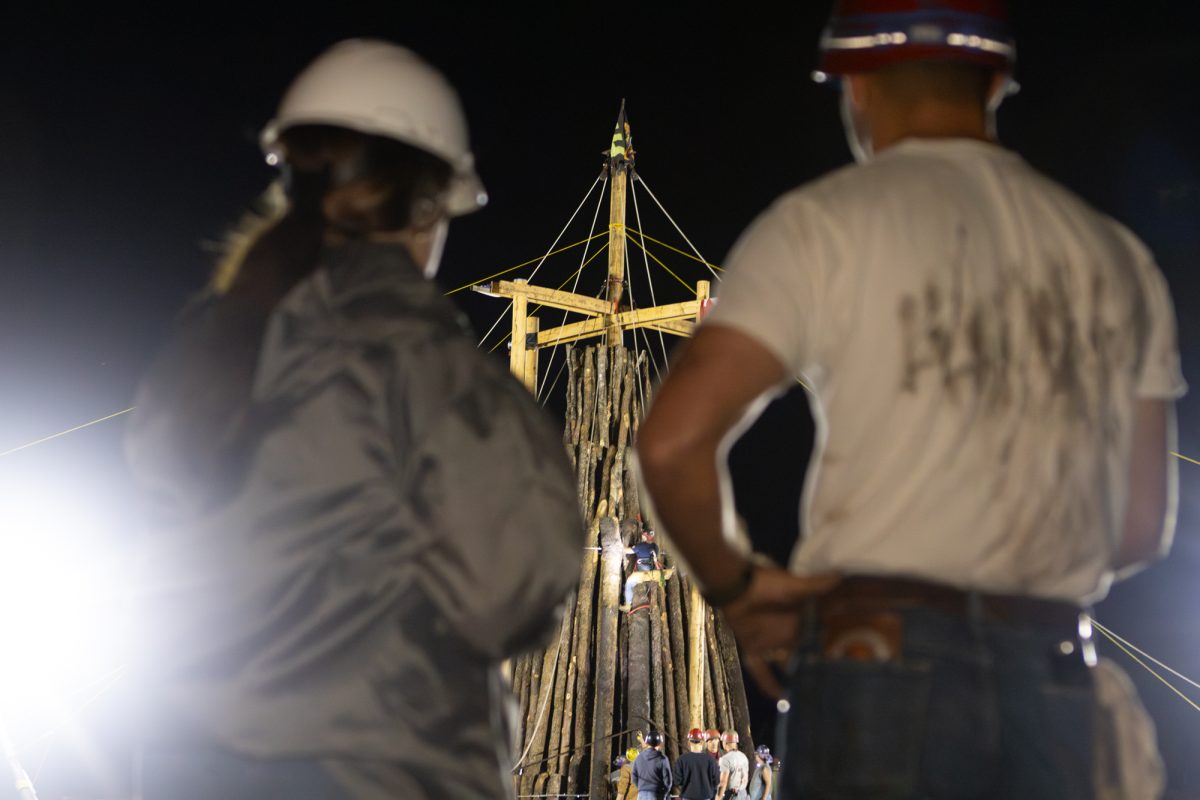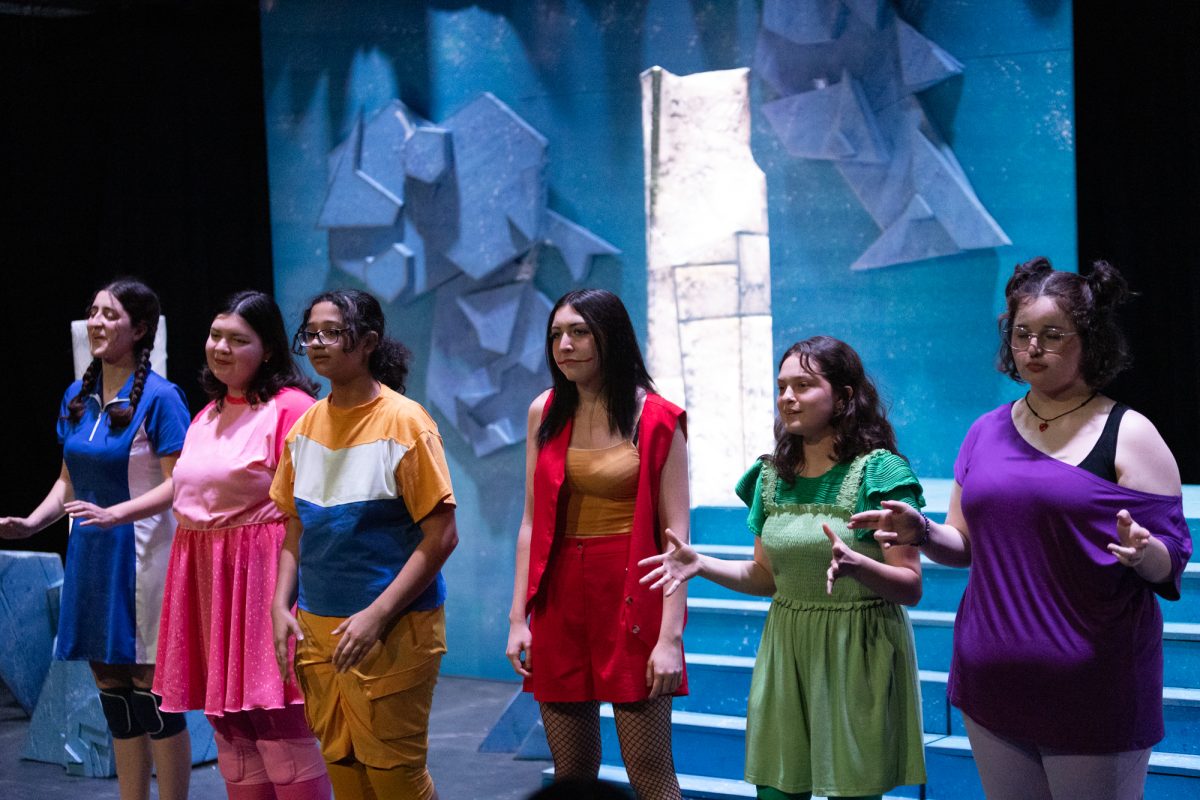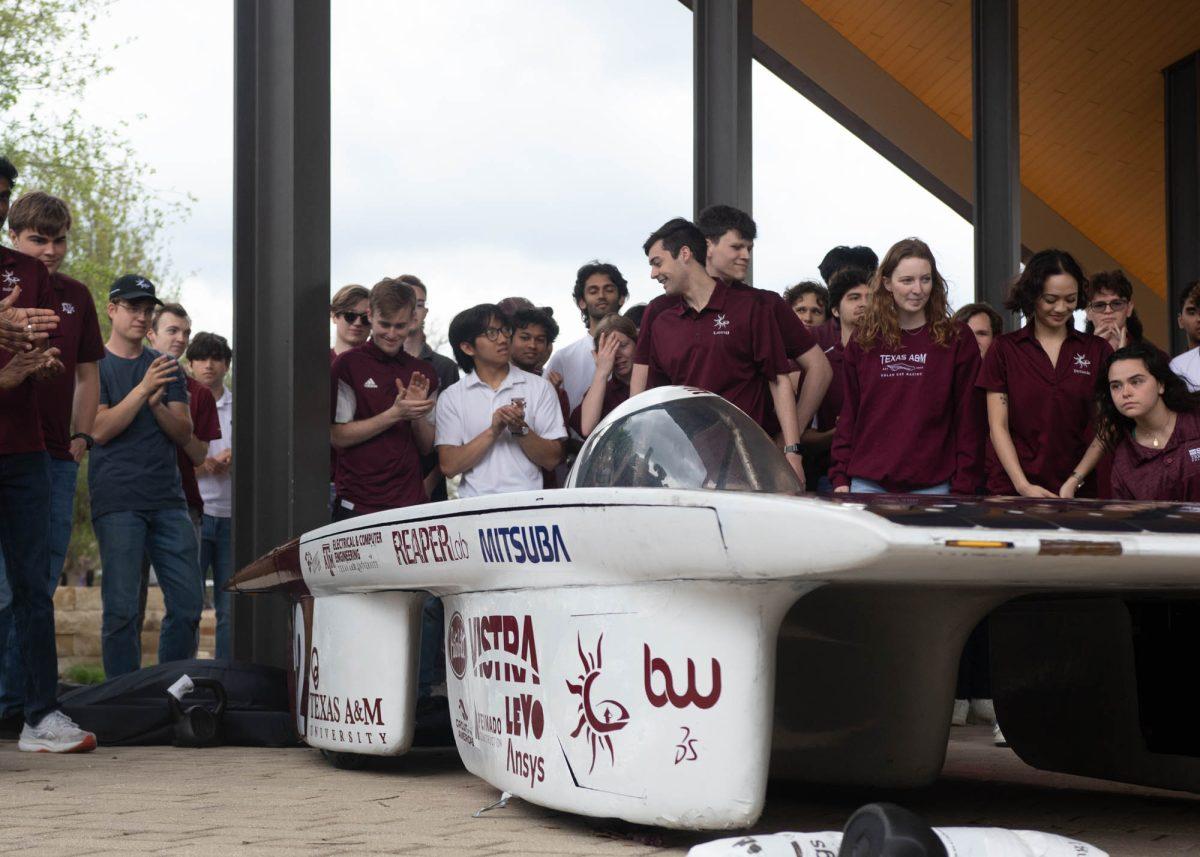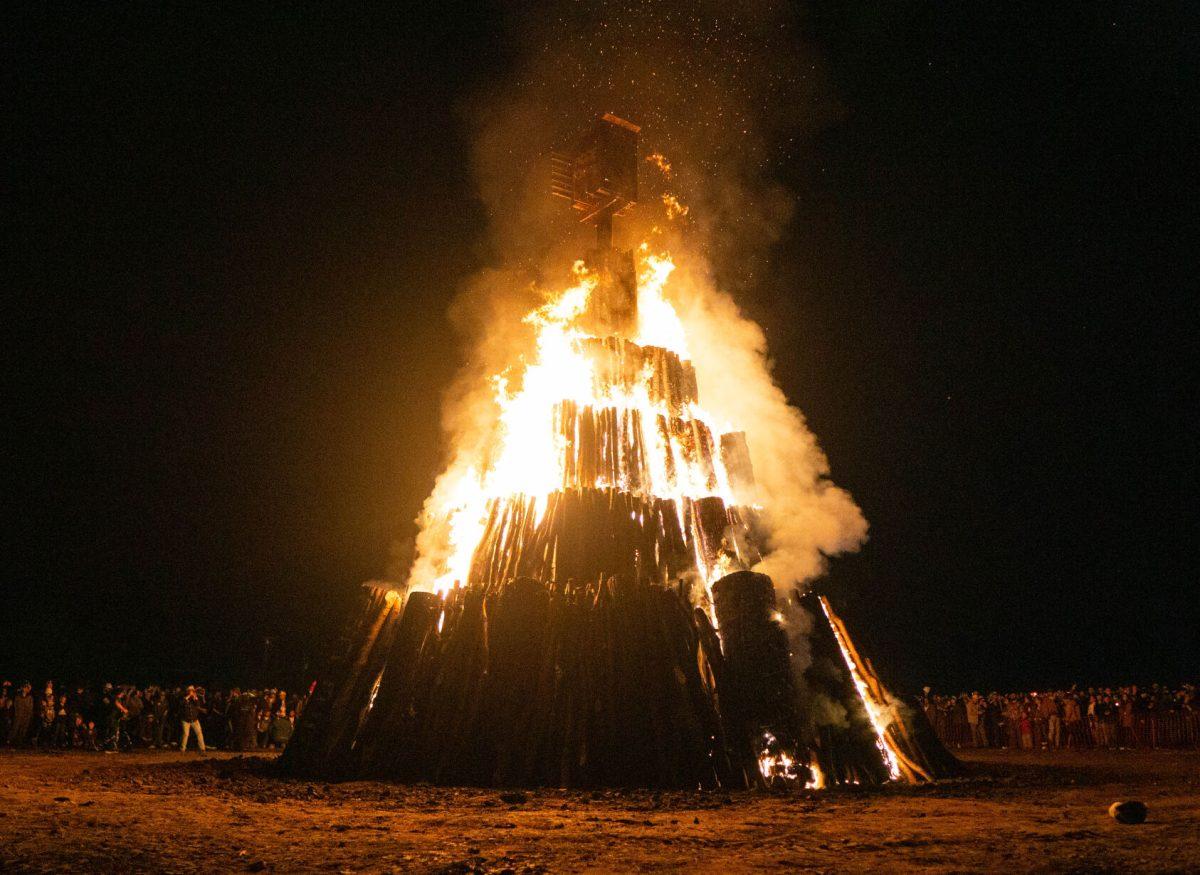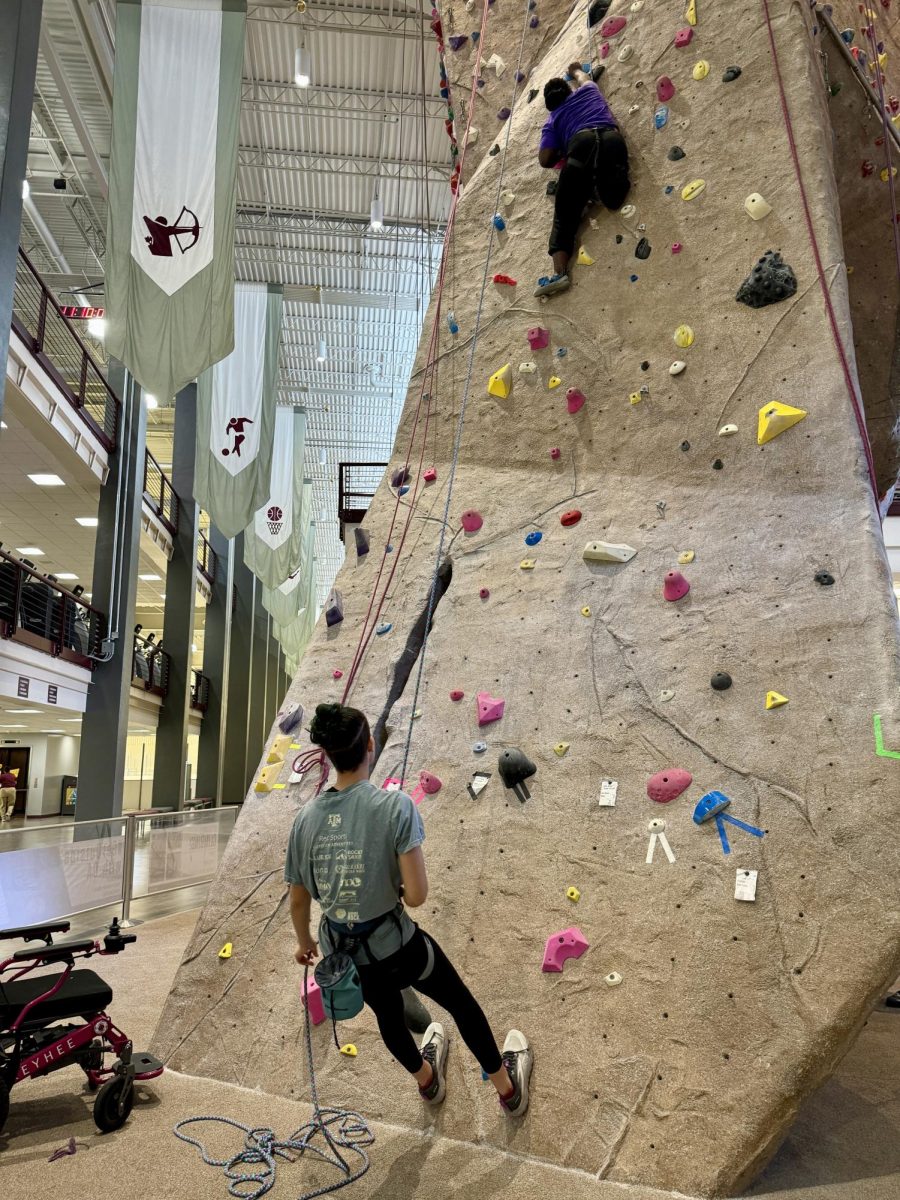As part of MSC Town Hall’s Lunchbox Series, the Kansas City-based band Making Movies will bring its unique blend of language and rhythm to Rudder Plaza at noon Thursday. The band’s members, Panama and Mexico natives, incorporate standard rock and roll elements into the Latin and African vibes in their music. Enrique Chi, guitarist and lead vocals, spoke with The Battalion Life & Arts Editor Katie Canales to discuss the band’s multifaceted sound.
THE BATTALION: A lot of your music is in Spanish, but a big part of your fan base is people who can’t understand your lyrics. What aspect of the music is so compelling?
CHI: I remember a time when I was in Panama, which is where I was born, and before I moved to the U.S. there were songs from bands that I loved in English. And I was a little kid, I had no idea what they were saying. The U.S. as a whole is a minority in being a country where most of the entertainment is in its own language. Most other countries of the world — entertainment comes from all kinds of languages. Most movies are in English; the rest of the world doesn’t speak English. So really, our work is a way of connecting without spoken language being the primary thing. For me, I noticed with the whole idea of the band is that we grab ancient African rhythms — the rhythms that showed up in Latin America that kind that of showed up through the slave trade and got mixed up into indigenous music — they got mixed up into Spanish guitars, and then you have Latin folk music which is kind of like the folk genre, the music that later birthed all the other genres — cumbia, salsa and all that kind of stuff. So we dig as ancient as we can with the rhythms, and something that we’ve noticed is the deeper we go with that and the more universal the music is, the less it matters what language the artist speaks and what language the song is in for the connection. And so for me, that is the main thing. I think also all human beings gravitate to melody. And so it’s important for me to be melodically interesting. That may be one of the differentiators in our band — we compose our music adhering to the laws of the African Clave, the tempo meter for African music, and we write our music to that tempo, which is a little bit different from the traditional rock and roll band.
THE BATTALION: What sets the music industry in Panama apart from that in America?
CHI: Something that differs is there is a deeper appreciation for the traditional folk genres and I don’t mean in like a hipster trendy way. I mean that being a musician with fame is almost an impossibility in Panama, like it’s just not really something that happens for people. It’s not a career choice that you can really go down because it’s just such a small country that it doesn’t have the economy to support a whole lot of artists. And there are exceptions to that rule but the general idea is that it’s such a small place that it’d be like trying to be a local musician in one city in the U.S. You have to travel all over to become an artist that is well known. So Panama is so small that you can’t do that, so when people play music they often do is more as a hobby and as an appreciation for the art form. And I feel like we carry that with us and we try to dig into the old roots. Being a famous rock band isn’t possible, so because of that, when you play music, you don’t even worry about that being an end game, which is kind of nice — it’s kind of nice to strip that away from the idea of playing music.
THE BATTALION: How did you decide to combine all this inspiration into your music? How do all the genres blend together?
CHI: I don’t think it was a singular decision; I don’t think it was one moment deciding we were going to include all these things. The nature of being immigrants — when you live in a city like Kansas City where there’s not a lot of Panamanians and there are a lot of immigrants — you find a kind of camaraderie amongst the people in your city that aren’t from there. I don’t know where you’re from, but I know when people go to college, if they leave from Austin and go to New York going to college and they meet each other it’s like, “Ah, sweet. You’re from Austin and you’re here in New York? Awesome, I have that in common with you.” And that’s kind of how immigrants are in a community, like, “Ah, cool, did you just move here? Cool cool cool.” So because of all that stuff, I have in Panama my blood aunt and uncle are from Venezuela, I have a blood aunt and uncle from Colombia, I have blood uncles from the U.S. and so there’s already all this mix of influence. And then when we moved to the U.S., I had these kinds of adopted not-blood aunts and uncles that are from Peru and from Venezuela and Mexico and all these places. So I feel like my life just started having that wider palette of life experiences and so it felt very natural to mix them. I also feel like one of the biggest goals of the band is to show the similarities in all that stuff. Everything from rock and roll influences to the Latin folk instruments — whether they’re South American, whether they’re Mexican folk influences, they’re some underlying threads that we can all latch onto. And I guess that goes back to your first question: What do people connect to when they can’t understand what I’m saying? I think they connect to that unifying thread that human beings love music. It doesn’t matter where you go in the world, human beings love music — it’s a part of their life. And so I think our band’s main goal is to — as we dig out the ancient rhythms and as we combine all these influences — we’re trying to get back to the core center which is that we all have that similar beginning, and that all this music kind of comes from the same place in our psyche. That’s how it happened. I don’t know if it was so much a decision as it just kind of happened that way.
THE BATTALION: What kind of instruments are used to incorporate elements of different genres into your music?
CHI: We’re kind of like a rock and roll band with Latin percussions. There’s bass, drums, guitar, keys and Latin percussions. And then in different moments in songs, the other elements show up. We have a Latin American guitar, a Mexican requinto, and that shows up. I have a Venezuelan cuatro that my aunt gave me, I have a Puerto Rican cuatro which is a completely different instrument, it just has the same name — a different style guitar that my friend from Puerto Rico’s parents brought me back to Kansas City. And he’s like one of these uncles or cousins that’s not blood but at this point of my life, he might as well be. So they brought me this instrument and I learned how to play it. And then I have this guitar from Panama called a mejorana and, in my last tour in Panama, which was a little over a year ago, when I was there one of my aunts had one and it was broken and she went, “Look, if you can figure out how to get this fixed, you can have it.” Because these are guitars that aren’t manufactured at all — they’re only custom-made. So you can’t go to a store and buy one — you have to go and order one and get one made for you. So that’s all very lucky because I’ve never had the opportunity to have one made for me. So those show up. Also, there’s a percussion instrument called a cajon and that instrument is from Peru and it’s a kind of percussion instrument invented by the slaves after they had their drums taken away from them. So those are the elements of the Latin folk instruments that we bring into the sound of the band, but you know, we intermix that stuff with different normal experimental rock stuff. All of us like rock and roll that’s more on that artistic side and a little more abstract.



